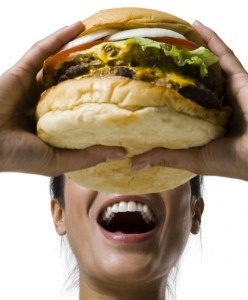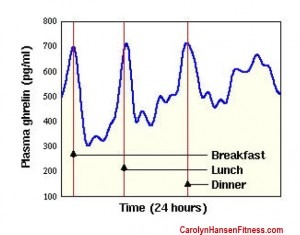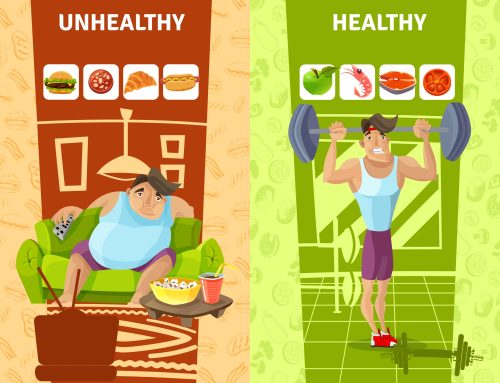 Hormones are chemical messengers that give instructions to cells, tissues and organs. Whenever a message needs delivery to a body-part hormones are secreted into the bloodstream where they are transported to that specific hormone’s receptors.
Hormones are chemical messengers that give instructions to cells, tissues and organs. Whenever a message needs delivery to a body-part hormones are secreted into the bloodstream where they are transported to that specific hormone’s receptors.
After arriving at their destination the hormones that were sent fit into the receptors just like a key does in a lock and then a specific chain of events is triggered as the hormone does its job. For example, in the case of hunger hormones an empty stomach leads to feeling hungry and the need to eat.
Researchers have recently discovered a hormone called ghrelin (it is produced by specialized cells that line the stomach and pancreas) that kicks our appetite into high gear when our tummies are empty. In simple terms, the hormone ghrelin prompts us to eat.
It is commonly believed by researchers that ghrelin is one of the means used by the body to protect its body fat stores when it senses that food may be in short supply. This would have been highly valuable back in the days of feast or famine that our ancients had to endure because it was Nature’s way of driving us to eat large amounts during times when food was abundant so that we could stock up on our fat stores in preparation for the next famine.
However with today’s fridges full of food that is easily accessible (along with all those fast-foods outlets) we hardly need another reason to eat.
Studies have proven that when you begin dieting, regardless of what your weight is, ghrelin levels rise. It’s a kind of throw-back to the body’s attempt to battle against what it perceives as famine…and health-threatening weight loss.
When calorie intake drops too low, it triggers ghrelin to jump in which in turn forces us to eat. Not surprisingly, we are tormented with cravings and urges to overeat when this appetite-increasing hormone is present throughout our bodies, even though it is actually being triggered by under-eating. It is only doing its job…driving us to eat.
The minute your caloric intake falls below a certain level your appetite will increase because your hunger hormone ghrelin communicates with your central nervous system informing it that it is time to turn up the appetite dial.
That’s precisely why embarking on a quick weight loss program is absolutely one of the worst things you could do leading weight-loss issues.
Hunger is both a mental and physical challenge…even the strongest willpower cannot continually withstand the calls of uncontrolled hormonal hunger.
The only way to outsmart your hunger hormones such as ghrelin is using a more conservative calorie reduction program with slow steady weight loss efforts.
Although science has yet to fully grasp the role that ghrelin plays in regulating food intake (because it is one of many that regulate our appetite control system) research confirms that it is a food intake initiator as its level rises just before eating and drops immediately after.
Because of the increased appetite that results from the rise in the levels of ghrelin, food scientists believe it makes permanent weight loss difficult to achieve.
It is obvious that if we are to lose unwanted weight for the long term then we must be able to keep that pesky hormone ghrelin under control.
For a mindset reprogram to make it effortless to both begin and stick to new healthy lifestyle changes “The Weight Loss Motivation Bible” is the place to start.
For more tools and resources from Carolyn Hansen to assist you in attaining your goals and achieving the success you desire in life, please visit:






Leave A Comment